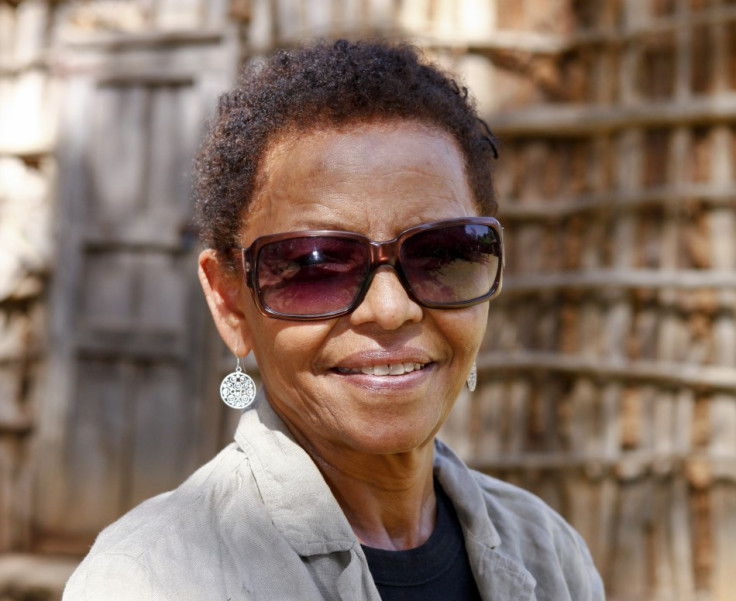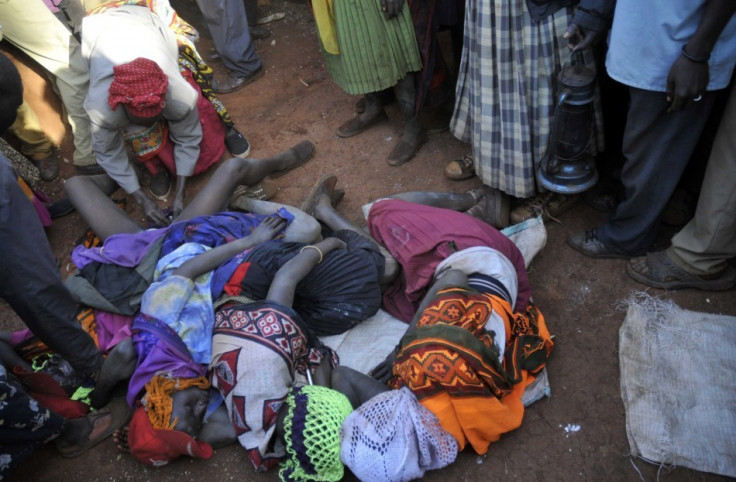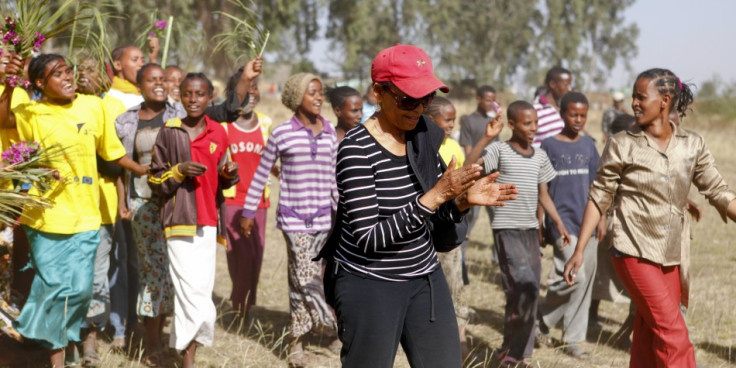How Bogaletch Gebre is Bringing an End to Female Genital Mutilation in Ethiopia
Gebre awarded the King Baudouin African Development Prize for her work in women's rights

Bogaletch Gebre does not know how old she is - she believes she was born in the 1950s but said she cannot be sure.
A victim of female genital mutilation (FGM), Gebre has spent 16 years campaigning for women's rights in Ethiopia. In that time, she has reduced the rate of FGM in some parts of the country from 97% to just 3%.
In recognition of her work, Gebre was awarded the King Baudouin African Development Prize in Brussels. The prize honours those who contribute to the development of Africa.
Gebre was born in Kembatta, a region in Ethiopia where FGM was endemic and women were largely uneducated. She refused to remain illiterate and learned to read by visiting the church school under the pretext of collecting water.
She eventually received a government scholarship and went on to study in Israel and the US, where she lived for 16 years.
In 1997, Gebre decided to return to Ethiopia to change the lives of women living there.
"If you have experience in countries like ours, seeing the women of my country and how they live and then getting the opportunity to see a different life - how women in other countries live - I wanted to improve their lives," she told IBTimes UK.
Gebre said that on her return to Ethiopia, she saw that life had not changed much: "Education had improved, girls were going to school, but they weren't succeeding or going further with their education.
"By the time they reached fourth grade they were coming into puberty and their parents were afraid of bride abduction and would not allow them to go to school.
"The major job for girls in the family is not studying, like boys. When they come home it is their job to go to fetch water, or get wood or cook dinner. Boys study and girls work during the time boys study, so they have no time for education."
She also told how girls who do continue with their studies are ostracised, with men refusing to marry them, believing them to be "disobedient".
"Female genital mutilation was a given, it was common. Domestic violence was an absolute given - It was a man's right to beat his wife - women expected to be beaten. If a husband is not beating his wife, he is not considered a strong man. All these things were happening when I arrived."
Gebre told how a 1998 study had shown 87% of all recent weddings in Ethiopia were the result of bridal abductions - where the girl or woman is kidnapped by the man who wishes to marry her. She said this practice was common, with prominent men wedding their wives through abduction.
"Women also have no rights after marrying. When a husband dies, his widow is supposed to marry his next of kin. If he has an older or younger brother of marrying age, she will automatically be given to one of them.
"Her permission is not asked."

After returning to her home country, Gebre set up KMG Ethiopia with her sister Fikrte to help develop communities to increase the rights and value of women. By speaking to villagers and gaining their trust, she was able to question their practices. Many elders did not know where FGM originated and had not realised it was not prescribed in the Bible or the Koran.
"People in villages may be non-literate but they are not stupid," she said. "They want what's good for themselves and their children."
Progress was quick, with the first wedding of an uncut woman taking place just a few years after the charity was founded. Gebre said considering FGM has been part of society for hundreds of years, four years was a short period of time.
"At the first wedding we had 350 uncut bridesmaids. It was held in the school because we wanted to publicise it and national TV came. It was a dramatic breakthrough in less than four years."
In 2000, the charity also held a celebration for 25,000 uncut girls, which was attended by around 80,000: "It was phenomenal," she said.
Change was not without challenges, however. Asked about the barriers she faced, Gebe replied: "Where do I start? I was kind of a bulldozer. If one door closed I tried to open another one and I just kept going.
"The biggest challenge was transportation and funding to go from district to district. Everybody was excited about speaking unspeakable words. FGM used to be called removing the dirt, and people didn't speak about it. It was the same as HIV and Aids - all these taboo issues we were handling. FGM and bridal abduction were done but not spoken about.
Gebre believes FGM can be eradicated completely, but that this will only happen if there is "commitment to action". She said that while other African governments are starting to bring in legislation making FGM illegal, it is still being practiced. The major barrier, she said, is seeing FGM as a cultural issue instead of a criminal one.
"Killing in any country is forbidden, whether it is a democratic society or a dictatorship. Like that, people should think FGM is a crime and governments and politicians should see that it's a human rights issue, and a life and death issue.
"In the process of cutting girls die. They bleed to death. If they don't die the wounds won't heel and become infected and they become ill. If they survive that and get to the age where they get married, they die in childbirth, not only the woman but also the children.
"It's a horrible process that humanity must see as a crime, not a cultural issue. It's violent and women should have the human right to life. [FGM] must be fought, like we fought slavery we must fight this."
Gebre said that while FGM and bridal abductions are a starting point, her main goal is to get equality for women - she says women all over the world are persecuted because of the sex they were born: "It is taken for granted that we can do anything we want with a woman. This should not be accepted. In this century, we should take this issue as seriously as terrorism.

"Women live in fear everyday of their lives. They live in fear within the household. They are afraid of their own partner from the beatings, they are afraid to go to school, they are afraid to go anywhere.
"They are always afraid, including myself. I can be and have been violated by just boys, not even by men. A woman's body is nothing and can be violated at any moment. I can't walk by myself for fear on the street and I'm a grown woman. So what does that say to our people coming into the world?
"How can we approach this terror in the manner it deserves? That's what we should talk about. Not just FGM, but something that happens to us as women. And it is happening to every woman in the world."
Gebre hopes the prize would bring a greater recognition for her cause and generate more funding.
"Today only 1% of all aid that goes to African countries goes to women, just one %. Yet we are half the population in every country if not more.
"We started in four districts and now we are in 700. We have developed tools and approaches to how can we eliminate not only FGM but gender inequality. We want a woman to be recognised as a person with human value, with dignity, who can hope and think," she said.
Female Genital Mutilation: 30 Million Girls Still Vulnerable to Practice
Female Genital Mutilation: Women Have 'Rich Sex Lives,' Claims Report
Coalition Pledges £35m to End Female Genital Mutilation
© Copyright IBTimes 2025. All rights reserved.






















